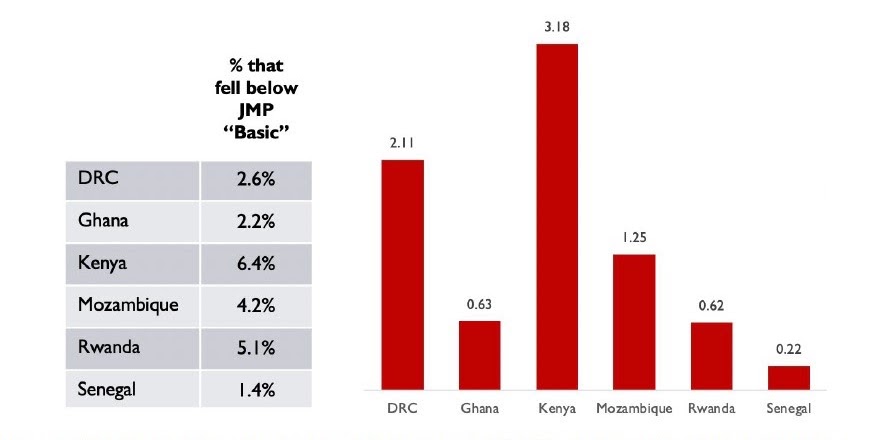While water, sanitation, and hygiene (WASH) are essential for both prevention and recovery of the pandemic, the impacts of COVID-19 have created new challenges to accessing these services. Ensuring global water security and hygiene in this new reality requires a clear understanding of the ways COVID-19 is changing the global WASH landscape and how the WASH sector can best adapt to these changes.
On March 11, 2021, USAID convened a panel of experts from the Agency, UNICEF, the World Bank, and WaterAid for a webinar to present new findings from the USAID Water, Sanitation, and Hygiene Partnerships and Learning for Sustainability (WASHPaLS) Project’s research on the impacts of COVID-19 on WASH across seven countries—Kenya, Ghana, Senegal, Rwanda, Nepal, Mozambique, and the Democratic Republic of Congo (DRC). The presenters also reflected on how those insights can help shape future approaches to support a water-secure world to an audience of more than 500 participants.
Jeff Albert of WASHPaLS provided a summary of the project’s overall findings on the WASH status of the countries studied. WASHPaLS conducted more than 300 informant interviews and over 3,000 SMS text surveys to collect these data.
The research found that complete disruptions of water supply have been largely avoided, but roughly 30 million people may have already experienced a drop below the WHO/UNICEF Joint Monitoring Programme’s (JMP) “basic” level for access to water services. Additionally, the data indicated a high level of self-reported handwashing behavior, increased demand for soap, and less pronounced decreases in sanitation access.
“At the outset of the pandemic, the biggest fear of many of us was that water services would be interrupted by crises associated with the procurement of critical supplies and staffing shortages,” Albert said. “We were relieved to find in this work that, for the most part, continuity of services has been maintained. Our worst fears, so far, have not been realized.”
Albert noted, however, that water service providers, especially smaller providers, are in dire financial straits due to government directives mandating free water, reduced willingness-to-pay, and increased operating costs.

At left, percentages of respondents (N=500+ respondents); at right, estimated populations in millions of each country falling below basic service levels on the JMP’s water ladder.
The World Bank’s Gustavo Saltiel noted similar findings and discussed additional ways the pandemic has impacted water utilities, such as sudden shifts in demand patterns, deferment of critical investments, decreases in commercial and industrial water consumption, and increases in household water needs. He then highlighted numerous opportunities to build resilience into the water sector and called for a holistic approach to “build back better.”
Building back better mandates a multilateral approach from multiple organizations. To this end, Jorge Alvarez-Sala of UNICEF outlined some of the organization’s response-mapping activities, interventions, and future research priorities that will help his organization better understand both primary and secondary impacts of the pandemic.
For a perspective from the field Clara dos Santos Dimene of USAID/Mozambique provided insights from the mission’s pandemic response initiatives, which include grants, financial stress assessments, and informative tools on water conservation.
To close out the presentations WaterAid’s Elizabeth Marcey highlighted the importance of safeguarding against WASH backsliding and called for doubling down on sustainable WASH service continuation. “WASH is critical to saving lives, particularly in a pandemic,” Marcey said. “We know that there is no other tool [other than handwashing],
besides masking, that is really important in a pandemic. The pressure to keep the taps on is very high.”
Jeff Goldberg, director of USAID’s Center for Water Security, Sanitation, and Hygiene, concluded the panel discussion by emphasizing the importance of unlocking financial support for service providers, facilitating access to WASH supply chains and commodities, and adapting business models when responding to the COVID-19 pandemic and global crises to come.
By Claire Hubert of the Water Communications and Knowledge Management Project

